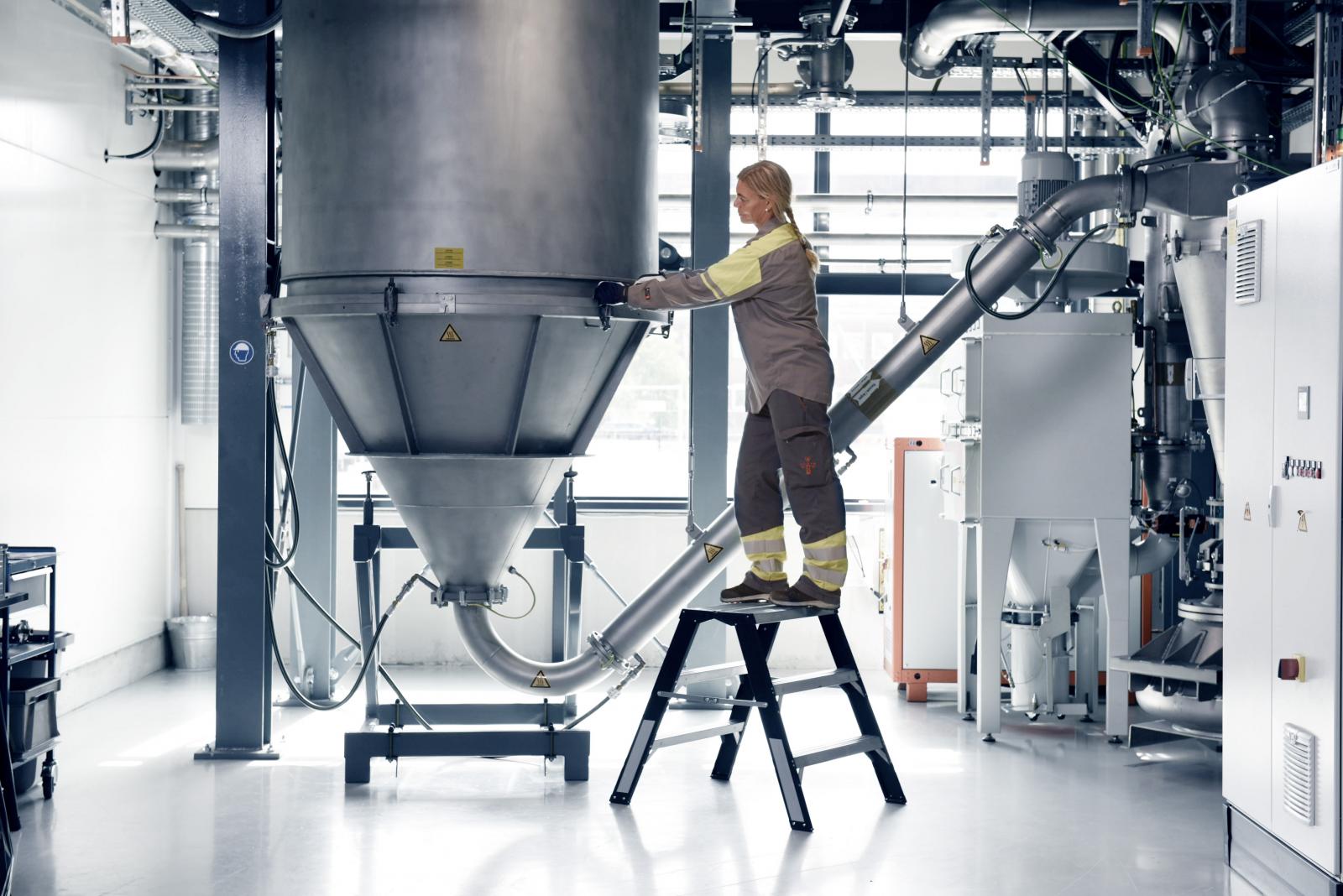
Sandvik’s new powder plant in Sweden has achieved ISO certification that allows its Osprey titanium powders to be used in additive manufacturing for medical applications.
The ISO 13485:2016 certification will allow the powders to be used in the 3D printing of parts such as implants manufactures directly from an individual’s anatomical data – enhancing the healing process and improving the prognosis for the patient.
Sandvik’s titanium powder plant, located in Sandviken Sweden, was inaugurated in the end of 2019, with more than 150 guests including end-users in key industries like aerospace and medical. Since then, extensive work has been ongoing to ramp-up the highly automated plant, finetuning the process and optimizing the powder to ensure the best possible consistency, morphology and quality required for additive manufacturing. As a result of this meticulous and structured work, the ’ISO 13485:2016’ certification for medical was recently received in August. Earlier this year, the same powder plant also achieved the prestigious ‘AS9100D’ aerospace certification.
“Achieving the ISO 13485:2016 medical certification will allow our medical customers to complete the necessary regulatory supplier approvals when bringing a medical application to market, utilizing Osprey® titanium powders from Sandvik,” says Keith Murray, VP and Head of Global Sales at Sandvik Additive Manufacturing.
The properties of the metal powders used directly impact the reliability of the performance of the AM-process, as well as the quality and performance of the finished product. This medical certification ensures that best practices and continuous improvement techniques – including the company’s development, manufacturing, and testing capabilities – are leveraged during all stages of the powder lifecycle, resulting in a safer medical device.
“In additive manufacturing it is essential to use high-quality metal powders with consistent quality, adapted to the different additive manufacturing processes. Sandvik’s highly automated manufacturing process ensures excellent consistency,” says Keith Murray.
Product traceability is especially important in the medical industry. Sandvik offers a complete traceability for its titanium powder, made possible by having the full supply chain in-house – from titanium sponge to finished powder. The new titanium powder process uses advanced electrode induction melting inert gas atomization technology to produce highly consistent and repeatable titanium powder with low oxygen and nitrogen levels. The production facility also includes dedicated downstream sieving, blending and packing facilities – integrated through the use of industrial robotics.
The powder plant is located next to Sandvik’s additive manufacturing facility in Sandviken, Sweden, which includes all relevant metal additive manufacturing processes. This means that the company can tailor the powder to different printing processes, on the same site.
“Having atomized fine metal powders for more than 40 years, and supplying titanium to the medical and aerospace industries for decades, Sandvik is no stranger to powder atomization or the requirements of the most demanding industries,” says Keith Murray.
Titanium has exceptional material properties, being strong yet light and offering high levels of corrosion resistance. At the same time, it is biocompatible. However, the cost and complexity of machining from titanium billet have historically restricted its use. Additive manufacturing opens up new opportunities.
“Now we are one of few metal powder and additive manufacturing companies that holds both the AS9100D quality certification for aerospace and the ISO 13485:2016 certification for medical. This will facilitate many customer collaborations going forward. Imagine what 158 years of leading materials expertise can do for your additive process,” says Keith Murray.
Powder metallurgy is also labeled a ‘recognized green technology’ – and the net-shape capability of technologies like additive manufacturing not only means that material waste is minimized, but also that great energy efficiency can be achieved, by eliminating manufacturing steps.
The first two powders produced at the plant will be Osprey® Ti-6Al-4V Grade 5 and Osprey® Ti-6Al-4V Grade 23. Other alloys are available on request. In addition to the ISO 13485:2016 and AS9100D certifications, the new titanium powder plant is also certified according to ISO 9001, ISO 14001 and ISO 45001.